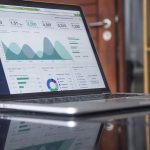Data analysis has played a vital role in helping companies improve their customer relationships. From teaching businesses about current industry trends, to what language consumers prefer, data has helped us leave behind the days of keyword heavy content and over generalized advertorials. As a result, the majority of businesses today rely on advanced data analysis to improve … [Read more...] about How to Use Data Analysis to Improve Consumer Communication
Big Data
Learn everything you need to know about big data. Find out how companies are using this revolutionary technology and what it means for your business strategy.
How Small Businesses Can Tame the Power of Big Data
Big data is one of the most powerful tools for large companies. Contrary to popular belief, it is also applicable for smaller companies that want to manage massive amounts of data. With the right approach, you can use big data to your advantage, even if you are a smaller firm. Scope The sheer scope of big data is often intimidating for little companies. It is important to get … [Read more...] about How Small Businesses Can Tame the Power of Big Data
Apache Spark – A Basic Understanding
Before diving deep into how Apache Spark works, lets understand the jargon of Apache Spark Job: A piece of code which reads some input from HDFS or local, performs some computation on the data and writes some output data. Stages: Jobs are divided into stages. Stages are classified as a Map or reduce stages (Its easier to understand if you have worked on Hadoop and want to … [Read more...] about Apache Spark – A Basic Understanding
How Data Analytics is Being Leveraged by Professional Sports
In the age of Big Data, the term analytics gets tossed around a lot, especially in the world of sports. Analytics insights from sports range from the truly strange, such as the fact the pro tennis player who grunts the most effectively tends to win, to the genuinely game-changing, such as NBA teams changing their season long approach to player rest. If so many sports are seen … [Read more...] about How Data Analytics is Being Leveraged by Professional Sports
Key Smart City Leaders and Projects to Watch this Year
Smart city became another buzz word these years but we are going to be hearing a lot more of in the coming years. By 2020 we will be spending $400 billion a year building smart cities. Let's start with smart city landscape to see the trend and then look at absolutely amazing smart city projects, that may change our life, make it better! I think now we really reached the point … [Read more...] about Key Smart City Leaders and Projects to Watch this Year
What is big data?
Big data is a term that refers to the massive amount of digital data created and shared every day. Big data can transform how we live, work, and communicate. It can be used to improve everything from public health and urban planning to business and marketing.
Big data is also changing the way we think about privacy and security. The volume, velocity, and variety of big data present challenges and opportunities for organizations and individuals. Regardless, big data is here to stay, and its impact will only continue to grow in the years to come.
What is big data analytics?
Big data analytics is the process of turning large, complex data sets into actionable insights. Businesses use various analytical tools and techniques, including machine learning and statistical analysis, to do this.
Big data analytics can be used to improve decision-making in areas like marketing, operations, and customer service. It can also be used to identify new business opportunities and optimize existing processes. With the help of big data analysis, businesses can gain a competitive edge by using their data better.
Want to learn more about big data? Datafloq has courses available. Contact us to get started.
When was big data introduced?
The term big data was coined in the 1990s, with some giving credit to John Mashey for popularizing the term. However, the concept of big data has been around for much longer.
Where does big data come from?
In the early days of computing, scientists and businesses began to realize that the amount of data being generated was increasing exponentially. As a result, they began to develop new methods for storing and processing data.
Over time, these methods have become increasingly sophisticated and have played a key role in enabling businesses to make sense of vast amounts of information. Today, big data is used in various industries, from retail to healthcare, and its importance is only likely to grow in the years to come.
What are examples of big data?
One of the most common examples of big data is social media data. With over 2 billion active users, Facebook generates a huge amount of data every day. This includes information on user interactions, posts, and even location data. Analyzing this data can help companies better understand their customers and target their marketing efforts.
Another example of big data is GPS signals. These signals are constantly being generated by devices like cell phones and fitness trackers. When combined with other data sets, GPS signals can be used to provide insights into everything from traffic patterns to human behavior. Finally, weather patterns are another type of big data set. By tracking these patterns over time, scientists can better understand the impact of climate change and develop strategies for mitigating its effects.
How do companies use big data?
Companies use big data in marketing, product development, and customer service. By analyzing large data sets, businesses can identify patterns and trends that would be otherwise difficult to spot. For example, a company might use big data to track customer behavior patterns to improve its marketing efforts.
Alternatively, a company might use big data to improve its products by identifying areas where customers are most likely to experience problems. For instance, big data can be used to improve customer service by finding pain points in the customer journey. Ultimately, big data provides companies with a valuable tool for gaining insights into their business operations.






